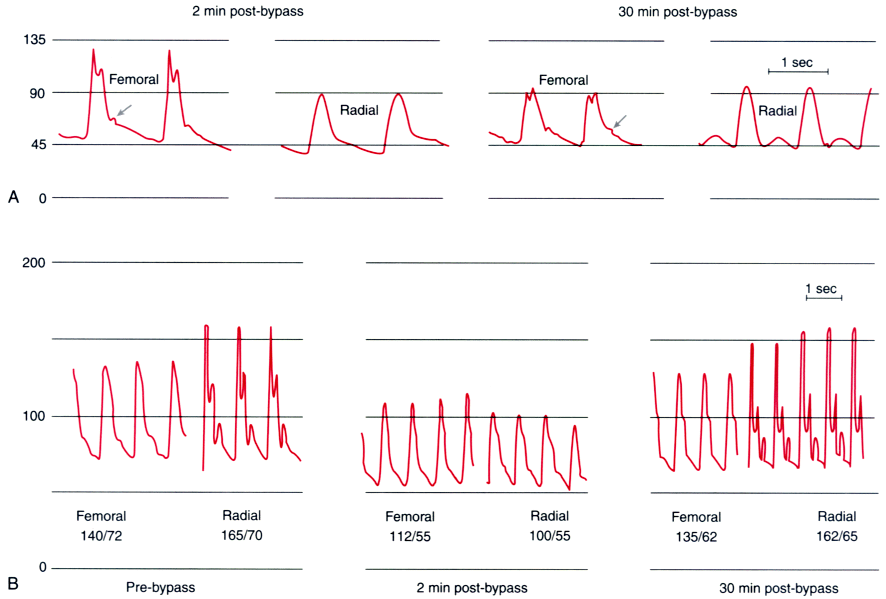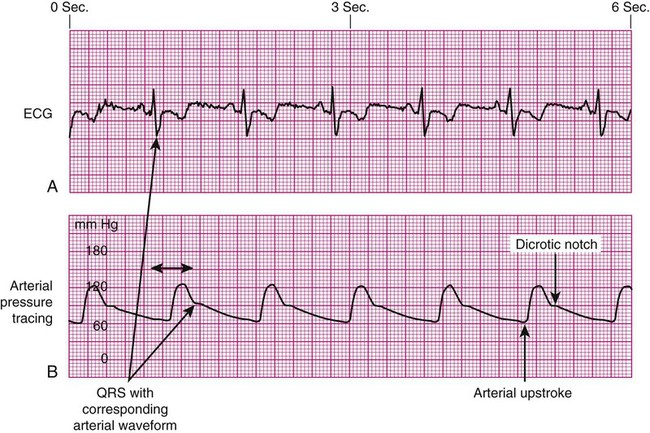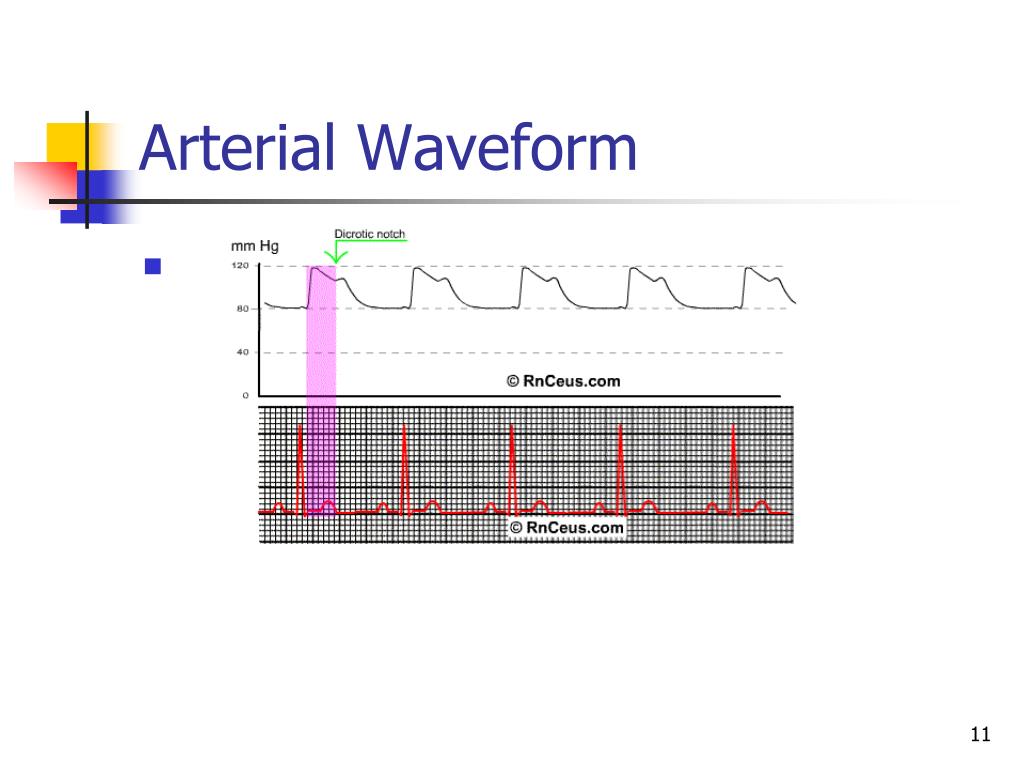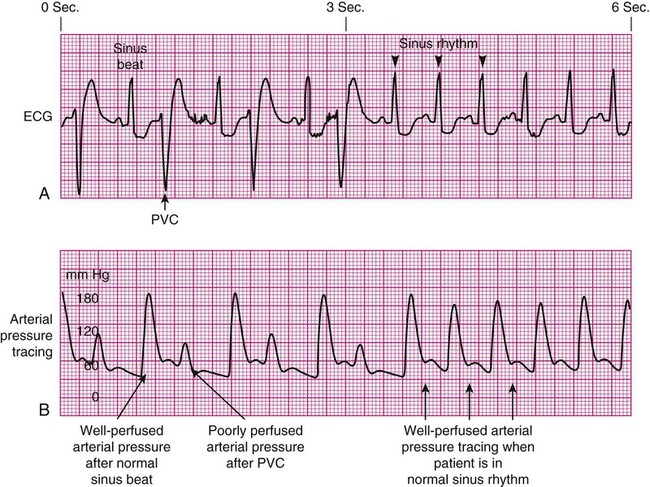Art line waveform interpretation information
Home » Trending » Art line waveform interpretation informationYour Art line waveform interpretation images are available in this site. Art line waveform interpretation are a topic that is being searched for and liked by netizens now. You can Find and Download the Art line waveform interpretation files here. Download all royalty-free photos.
If you’re searching for art line waveform interpretation pictures information linked to the art line waveform interpretation interest, you have pay a visit to the right site. Our website frequently provides you with hints for refferencing the highest quality video and picture content, please kindly hunt and locate more enlightening video content and graphics that match your interests.
Art Line Waveform Interpretation. It is most commonly used in intensive care medicine and anesthesia to monitor blood pressure directly and in real time (rather than by intermittent and We will review how to care for them, the dangers associated with the art. At the beginning of the inspiratory cycle, the ventilator has to generate a pressure p res to overcome the airway resistance. It is also used to obtain samples for arterial blood gas analysis (abg’s), and is convenient.
 ECG interpretation Characteristics of the normal ECG (P From pinterest.com
ECG interpretation Characteristics of the normal ECG (P From pinterest.com
In the future, this could provide doctors with the ability to safely and. A monophasic waveform is normal in a renal artery and abnormal in a brachial artery). The systolic phase, characterised by a rapid increase in pressure to a peak, followed by a rapid decline. It is also used to obtain samples for arterial blood gas analysis (abg’s), and is convenient. Arterial line and pressure transducer. • describe the flow of blood through the heart.
He is also the innovation lead for the australian centre for health innovation at alfred health and clinical adjunct associate professor at monash university.
An arterial line is a thin catheter inserted into an artery. It is most commonly used to monitor blood pressure directly and accurately, as with close and accurate titration of blood pressure medications. He is also the innovation lead for the australian centre for health innovation at alfred health and clinical adjunct associate professor at monash university. It is also used to obtain samples for arterial blood gas analysis (abg’s), and is convenient. The square wave test is used to help with the interpretation of values for arterial lines. This high pressure creates vibrations in the transducer, then it is followed by a damping coefficient, or how fast the vibrations stop.
 Source:
Source:
Arterial line placement is a common procedure in various critical care settings. It is most commonly used in intensive care medicine and anesthesia to monitor blood pressure directly and in real time (rather than by intermittent and Noninvasive physiologic vascular studies a guide to diagnosing peripheral arterial disease radiographics / whether you consider it an investment, a hobby or just a cool way to decorate the walls in your home, acquiring new art can be a fun and exhilarating experience. It travels much faster than the actual blood which is ejected. A monophasic waveform is normal in a renal artery and abnormal in a brachial artery).
 Source: blogartzone.blogspot.com
Source: blogartzone.blogspot.com
1,3,4,5 newer technologies for hemodynamic monitoring such as measurement of stroke volume variation and cardiac output are also facilitated by the presence. At the beginning of the inspiratory cycle, the ventilator has to generate a pressure p res to overcome the airway resistance. Then, it deflates on the r wave. Noninvasive physiologic vascular studies a guide to diagnosing peripheral arterial disease radiographics / whether you consider it an investment, a hobby or just a cool way to decorate the walls in your home, acquiring new art can be a fun and exhilarating experience. The arterial waveform in this clinical state may be normal, or quite fat!

The systemic arterial pressure waveform is the result of systolic expulsion of blood from the left ventricle, which is subsequently followed by diastolic arterial dissipation of the sv ().the electrocardiograph (ekg) signal and the arterial waveform signal are inextricably tied together, one representing the electrical contraction of the heart and the other representing its mechanical contraction. 9 understanding the arterial waveform 10 components of the arterial line waveform 12 arterial line accuracy 12 patency of the line 12 levelling the transducer 13 zeroing the transducer 14 square wave testing 15 trouble shooting 15 complications 16 dressing, line change and removal 16 safe management of an arterial line. It is most commonly used in intensive care medicine and anesthesia to monitor blood pressure directly and in real time (rather than by intermittent and The systolic phase, characterised by a rapid increase in pressure to a peak, followed by a rapid decline. Upon completion of this course, the nurse should be able to:

It deals with the ways in which the shape of the arterial waveform can be correlated with the pathology affecting the cardiovascular system. The accurate, responsive, adequately damped art line trace. We will review how to care for them, the dangers associated with the art. The systemic arterial pressure waveform is the result of systolic expulsion of blood from the left ventricle, which is subsequently followed by diastolic arterial dissipation of the sv ().the electrocardiograph (ekg) signal and the arterial waveform signal are inextricably tied together, one representing the electrical contraction of the heart and the other representing its mechanical contraction. Arterial line placement is a common procedure in various critical care settings.
 Source: youtube.com
Source: youtube.com
Arterial line and pressure transducer. He is also the innovation lead for the australian centre for health innovation at alfred health and clinical adjunct associate professor at monash university. It is most commonly used in intensive care medicine and anesthesia to monitor blood pressure directly and in real time (rather than by intermittent and An arterial line is a thin catheter inserted into an artery. In the future, this could provide doctors with the ability to safely and.
 Source: pinterest.com
Source: pinterest.com
The arterial waveform in this clinical state may be normal, or quite fat! Vide an accurate arterial pressure waveform. Noninvasive physiologic vascular studies a guide to diagnosing peripheral arterial disease radiographics / whether you consider it an investment, a hobby or just a cool way to decorate the walls in your home, acquiring new art can be a fun and exhilarating experience. The systemic arterial pressure waveform is the result of systolic expulsion of blood from the left ventricle, which is subsequently followed by diastolic arterial dissipation of the sv ().the electrocardiograph (ekg) signal and the arterial waveform signal are inextricably tied together, one representing the electrical contraction of the heart and the other representing its mechanical contraction. Arterial lines provide continuous blood pressure monitoring in the critically ill patients.
 Source: butuhdi.majesticgal.com
Source: butuhdi.majesticgal.com
The square wave test is used to help with the interpretation of values for arterial lines. It is also used to obtain samples for arterial blood gas analysis (abg’s), and is convenient. At the beginning of the inspiratory cycle, the ventilator has to generate a pressure p res to overcome the airway resistance. • outline the 5 phases of the cardiac cycle. Upon completion of this course, the nurse should be able to:
 Source:
Source:
Abnormal ekg’s and corresponding arterial waveforms. It travels much faster than the actual blood which is ejected. The arterial waveform in this clinical state may be normal, or quite fat! • describe the flow of blood through the heart. Abnormal ekg’s and corresponding arterial waveforms.
 Source: makekol.mystylefashionassistant.com
Source: makekol.mystylefashionassistant.com
The arterial waveform will show a notch on the downward stroke; The remainder of the downward stroke is the diastolic flow of blood into the arterial tree. Arterial lines provide continuous blood pressure monitoring in the critically ill patients. Abnormal ekg’s and corresponding arterial waveforms. The arterial waveform in this clinical state may be normal, or quite fat!
 Source: researchgate.net
Source: researchgate.net
• outline the 5 phases of the cardiac cycle. Abnormal art line waveforms : It is also used to obtain samples for arterial blood gas analysis (abg’s), and is convenient. At the beginning of the inspiratory cycle, the ventilator has to generate a pressure p res to overcome the airway resistance. Arterial line placement is a common procedure in various critical care settings.
 Source: researchgate.net
Source: researchgate.net
This phase begins with the opening of the aortic valve and corresponds to the left ventricular ejection. 1,3,4,5 newer technologies for hemodynamic monitoring such as measurement of stroke volume variation and cardiac output are also facilitated by the presence. Arterial line placement remains a readily acceptable intervention for unstable patients requiring continuous monitoring of blood pressure, frequent blood sampling, and blood gas analysis. We will review how to care for them, the dangers associated with the art. The square wave test is used to help with the interpretation of values for arterial lines.
 Source: nursekey.com
Source: nursekey.com
• outline the 5 phases of the cardiac cycle. It is also used to obtain samples for arterial blood gas analysis (abg’s), and is convenient. • describe the flow of blood through the heart. It deals with the ways in which the shape of the arterial waveform can be correlated with the pathology affecting the cardiovascular system. Line, troubleshooting the waveform, and how to set up the equipment needed.
 Source: slideshare.net
Source: slideshare.net
It is also used to obtain samples for arterial blood gas analysis (abg’s), and is convenient. It is also used to obtain samples for arterial blood gas analysis (abg’s), and is convenient. It is most commonly used in intensive care medicine and anesthesia to monitor blood pressure directly and in real time (rather than by intermittent and • describe the flow of blood through the heart. Arterial line and pressure transducer.
 Source: slideserve.com
Source: slideserve.com
The remainder of the downward stroke is the diastolic flow of blood into the arterial tree. Arterial lines provide continuous blood pressure monitoring in the critically ill patients. The remainder of the downward stroke is the diastolic flow of blood into the arterial tree. Upon completion of this course, the nurse should be able to: A waveform that rises sharply, plateaus, and drops off sharply when the flush valve is released again.

Chris is an intensivist and ecmo specialist at the alfred icu in melbourne. This phase begins with the opening of the aortic valve and corresponds to the left ventricular ejection. The arterial waveform will show a notch on the downward stroke; The arterial pressure wave (which is what you see there) is a pressure wave; It is also used to obtain samples for arterial blood gas analysis (abg’s), and is convenient.
 Source: lulu.planetmomtshirts.com
Source: lulu.planetmomtshirts.com
This high pressure creates vibrations in the transducer, then it is followed by a damping coefficient, or how fast the vibrations stop. A monophasic waveform is normal in a renal artery and abnormal in a brachial artery). Upon completion of this course, the nurse should be able to: Arterial line and pressure transducer. In the future, this could provide doctors with the ability to safely and.
 Source: nursekey.com
Source: nursekey.com
Chris is an intensivist and ecmo specialist at the alfred icu in melbourne. Arterial line placement remains a readily acceptable intervention for unstable patients requiring continuous monitoring of blood pressure, frequent blood sampling, and blood gas analysis. It is most commonly used in intensive care medicine and anesthesia to monitor blood pressure directly and in real time (rather than by intermittent and Ekgs and the ekg waveform and to help the nurse to identify both normal and abnormal ekg findings. The accurate, responsive, adequately damped art line trace.
 Source: slideshare.net
Source: slideshare.net
The remainder of the downward stroke is the diastolic flow of blood into the arterial tree. Abnormal ekg’s and corresponding arterial waveforms. This notch is called the dicrotic notch and is due to the closure of the aortic valve. An arterial line is a thin catheter inserted into an artery. In the future, this could provide doctors with the ability to safely and.
This site is an open community for users to submit their favorite wallpapers on the internet, all images or pictures in this website are for personal wallpaper use only, it is stricly prohibited to use this wallpaper for commercial purposes, if you are the author and find this image is shared without your permission, please kindly raise a DMCA report to Us.
If you find this site convienient, please support us by sharing this posts to your preference social media accounts like Facebook, Instagram and so on or you can also bookmark this blog page with the title art line waveform interpretation by using Ctrl + D for devices a laptop with a Windows operating system or Command + D for laptops with an Apple operating system. If you use a smartphone, you can also use the drawer menu of the browser you are using. Whether it’s a Windows, Mac, iOS or Android operating system, you will still be able to bookmark this website.

Category
Related By Category
- Professional arts pharmacy phone number Idea
- Living arts college reviews information
- Luxembourg art prize 2021 winners information
- Midland center for the arts holiday art fair Idea
- Circle pattern design art information
- Open air art market new orleans Idea
- Art of skin care reviews information
- Florida museum of photographic arts jobs information
- Ancient indian art pdf Idea
- Art of war 40k discord information